The second open forum session of Tokyo Conference 2024, titled What is required of the world's democracies now, had the representatives from the ten think tanks engage in a passionate discussion that lasted for more than an hour and a half.
All countries must tackle the problems of the world, not just democracies
Session 2 opened with Yasushi Kudo, President of The Genron NPO, describing what he sees as the imminent collapse of the Western-led, international order built upon the ideals of freedom and the rule of law, and he called for the world to work towards building a rules-based order. He noted his concern that the responses to the wars in Ukraine and Gaza are seen by the Global South as evidence of the double standards of the West, and this has widened the gap between these regions. He also pointed to the numerous major challenges the democracies of the world are facing.
"Populism is on the rise and causing issues in Japan, the US, and the Europe. Ensuring that civil society is reliable and trustworthy is not possible without the cooperation of the public, but the internet is now rife with conspiracy theories, and intellectuals are under attack," he said.
Bronwen Maddox is Director and Chief Executive of Chatham House (UK), and she began by answering the question that served as the title of the Session: "What is required of the world's democracies now?"
"I think that they should make a strong case for democracy. That means two things: solving their problems at home and proving they have a political system that is capable of (doing so), and then acting internationally to emphasize just why it is an attractive way to organize relations between people."
Maddox explained that democratic countries need to be able to demonstrate that politicians can make the difficult choices that "any country needs to make," an example of which being that democracies need to show that they have the political will power to raise taxes when funding is required for defense purposes. She also stated that while democracies are guilty of maintaining double standards, countries like Russia and China are guilty of the same thing.
"It is not just democracies that are guilty of self-interest," she said.
As part of the effort to persuade people around the world of the benefits of democracy, Maddox believes that democracies could be "more positive about many of the things that flow from a free society," and she pointed to the greater creativity, and scientific and cultural innovation shown in democracies.
Paul Samson, Director of Canada's Centre for International Governance Innovation (CIGI), stated that "Democracies actually require some kind of international system...to thrive. They need some kind of rules-based system that is transparent, functioning, and compatible with a lot of the democratic ideals to continue to flourish."
However, Samson's concern is that the system seems to have "broken down on all fronts" and reminded the audience that the world is faced with a "litany of issues requiring global cooperation, and not just conflicts." These issues include climate change, pandemics, cyber-security, artificial intelligence data governance, and the debt problem in many of the poorest countries, and Samson explained that, "In the absence of an international system that is functioning, those issues don't get the coordination they need and that, in democratic countries, the people expect."
Democracies are facing various issues
Ong Keng Yong, who is Executive Deputy Chairman of Singapore's S. Rajaratnam School of International Studies, noted that there are generational differences in ASEAN now that make it a struggle to achieve the goal of spreading democracy.
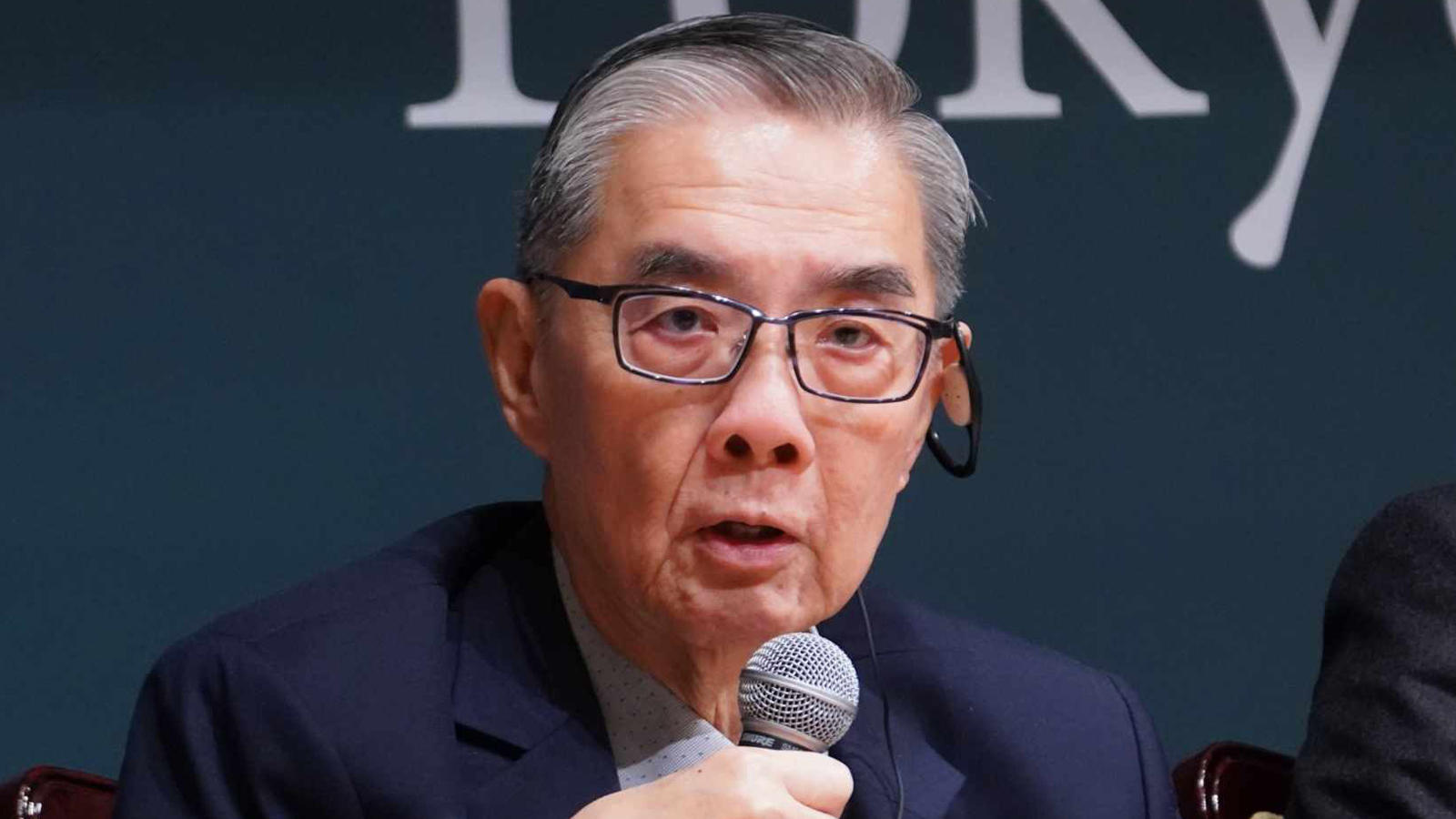
"The world is in a more complicated era. The older regime of democratic governance and the aspirations for implementing democratic processes in existing governments have become quite difficult to get across to the younger generations. These days you use the internet...and do a lot more things that what an open democratic system in a country can offer," he said. "The whole democratic process is not yet able to cope with the constant change in different ways of operating."
Carlos Ivan Simonsen Leal serves as President of the Getulio Vargas Foundation in Brazil, and he agreed with Ong before adding, "Democracy depends on education. Education where you explain freedom of speech, freedom of movement, freedom of association. What is the budgetary process and why is it important for democracy? If people don't understand that you don't really have democracy. You have something that can be attacked very easily."
Leal also said that a strong judiciary is an important part of democracy, and pointed out that both Brazil and the US faced similar situations after their recent national elections, and it was the judicial system that managed to apply the rule of law and "appease things very fast."
Ettore Greco is Executive Vice President of the Institute of International Affairs in Italy, and he addressed some of the challenges democracies face today.
"There has been a big slide towards some authoritarian practices," he explained. "There have been attacks on the media system. One factor is that we are still facing a populist wave that has not stopped and of course is essentially fueled by discontent about the effects of globalization. Now there has been a change in platform among those parties in the last few years. They have shifted from a strongly anti-EU platform and now concentrate much more on the migrant issues. Another factor that should not be underestimated is that...those parties have further complicated the formation of stable government. In this moment, we have what I would call a 'Weimar republic effect.' Such instability may erode the trust in the democratic system."
Miles Rappaport is the former Senior Practice Fellow in American Democracy at the Ash Center for Democratic Governance and Innovation at the Harvard Kennedy School in the US. Rapoport touched upon the potential impact on the international community in the event Donald Trump is re-elected as US President.
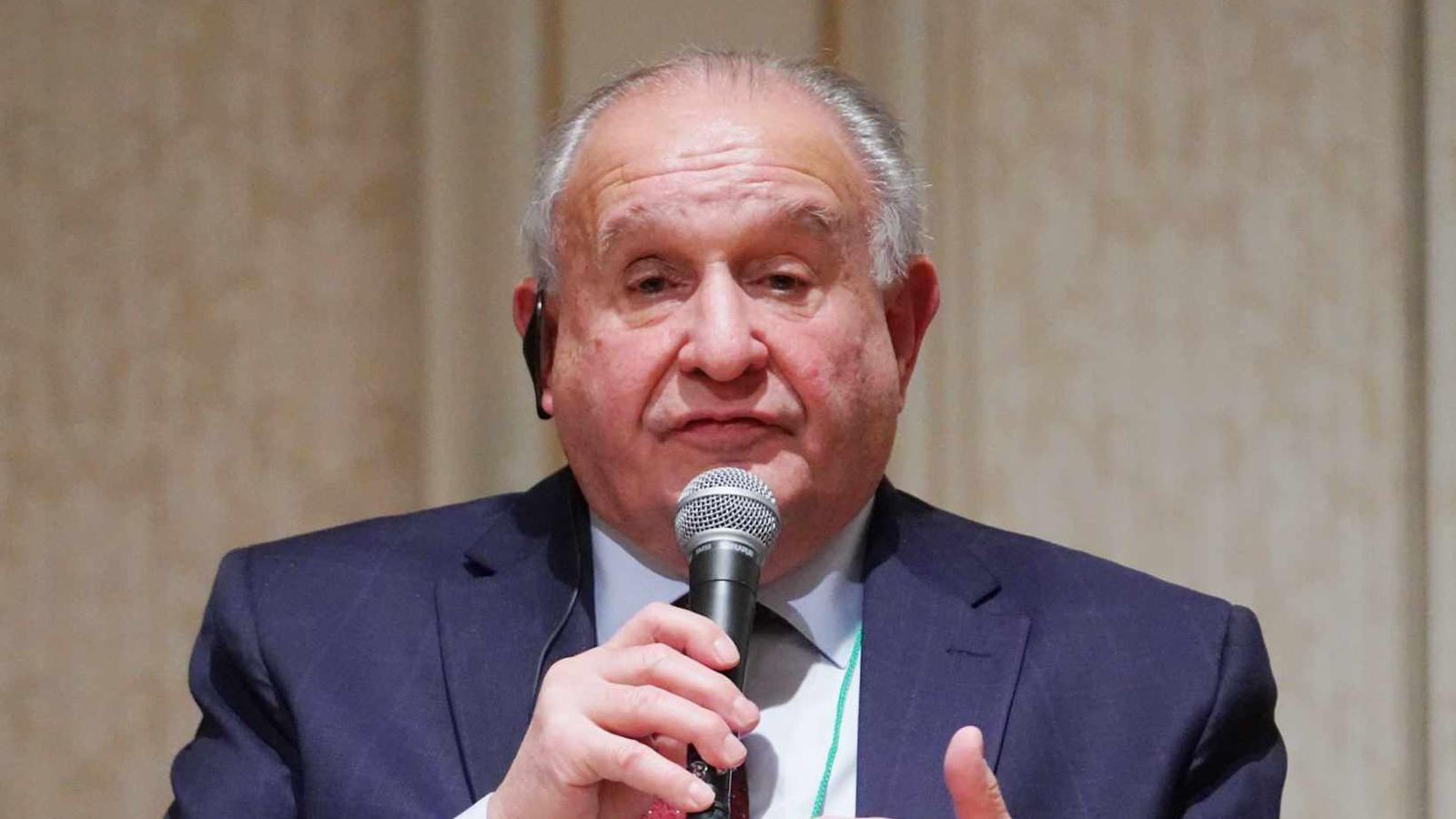
"We're eight months away from the elections still. It's hard to put any stock in what we're seeing in polls. We're in a very fluid and very dynamic situation," he explained. "Because Donald trump is a towering figure in the media, there is an assumption that he is going to be the next president. I don't think that assumption is necessarily correct at all. There are a lot of factors that are going to be in play between now and November in the United States that could make it more likely that Joe Biden will be elected."
Former NATO Director of Policy Planning Fabrice Pothier said, "Japan is an interesting example and, in a way, a leader on how to work with the Global South. Japan has a good way of working in Africa, Latin America, and Southeast Asia. Here the democratic proposition has to go through concrete infrastructure projects, not just promoting democracy and rules and norms, but actually proposing to upgrade the economic social infrastructures of countries who can then be a part of a broader effort to preserve market economies but also open societies.
Urgent need to deal with the issue of social media disinformation
As moderator, CIGI Distinguished Fellow Rohinton Medhora next brought up the proposed EU legislation governing the use of AI, which "explicitly bans the use of AI for social scoring and real-time use of facial recognition technology in public places." He noted that this differs from Chinese law, which not only accepts its use in that fashion but considers it a necessary part of maintaining a just and growing society.
Lindsay began by expressing his agreement with much of what had already been said thus far.
"It is clear that democracy is in retreat around the world. There are new stressors being added, in particular with artificial intelligence, and its immense potential for harm as well as good, (and concerns about what) it could do with misinformation and disinformation," he began. However, he also pointed out that the situation may not be as dire as it first seems.
"The democratic aspiration is greatest in those countries that don't have it. I think there is something about democracy that is universal. I think of the people in Belarus who poured out into the streets to try and bring democracy to their country. I can think of plenty of other examples."
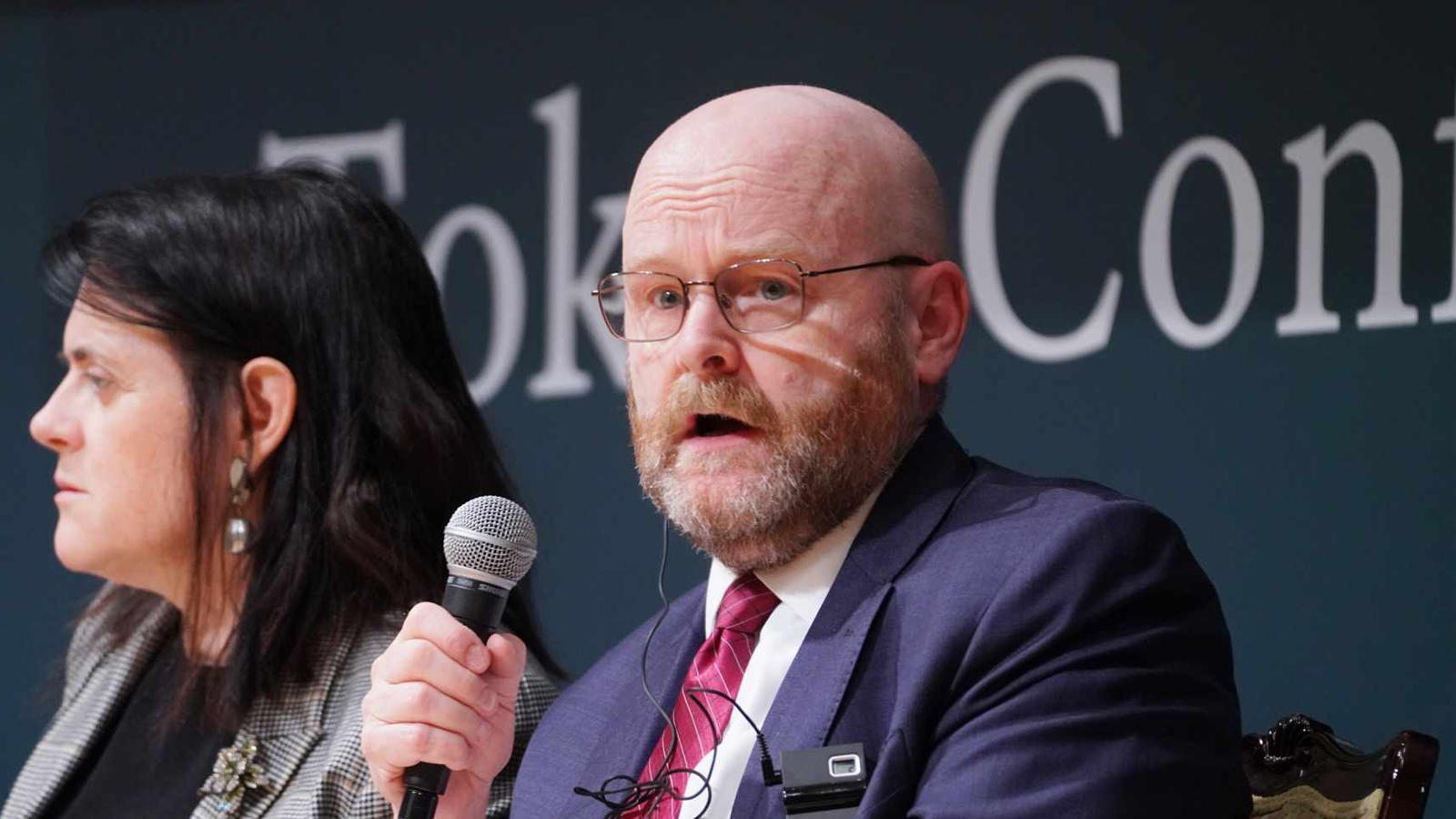
Sunjoy Joshi, Chairman and Chief Executive of India's Observer Research Foundation, added his voice to those sounding the alarm about the current state of democracy.
"Fragility of democracies is a question that has arisen in some of the most developed democracies. Democracies are primarily about creating politically, socially, and economically cohesive societies," Joshi said. "Democracies progress when you get social and economic cohesion. We are living in a complex, complicated world. The ability of democracy to handle the kind of complexity which it is facing, and not get seduced by simple stories and narratives which sell to the political clients in the short term, that is the challenge that democracies are facing. The good thing about democracies is that they have self-correcting mechanisms. Democracy is the only way you can have vibrant, diverse societies."
Director Thomas Gomart of the French Institute of International Relations returned to a point made earlier by Leal when he emphasized the importance of separation of powers for democratic regimes.
"There need to be clear distinctions between the executive, legislative, and judiciary powers," he said. "I would add a fourth power, which is the media one."
Gomart described the growing difficulty the media has in determining which information is true and which is false, and pointed out that the proportion of false information to true information on social media is particularly high.
Stefan Mair is Director of the German Institute for International and Security Affairs, and he called on democracies to have more pride.
"I think democracies have to be more confident about what they have achieved. When you look at the crises of the past 20 years, from the financial market crises, the Eurozone crisis, the migration crisis, COVID-19, democracies have coped with these crises without lowering the living standard significantly," Mair said. He added that democratic countries need to be more transparent with their populations about the difficult choices they have to make, and that they need to turn their eyes to internal threats to their political system.
"Democracies have to deal more decisively with their internal enemies. In Germany...we have a broad range of instruments the state can use against anti-constitutional parties and to deal with them. We have to focus on how we deal with internal enemies, with a special focus on fake news and social media."
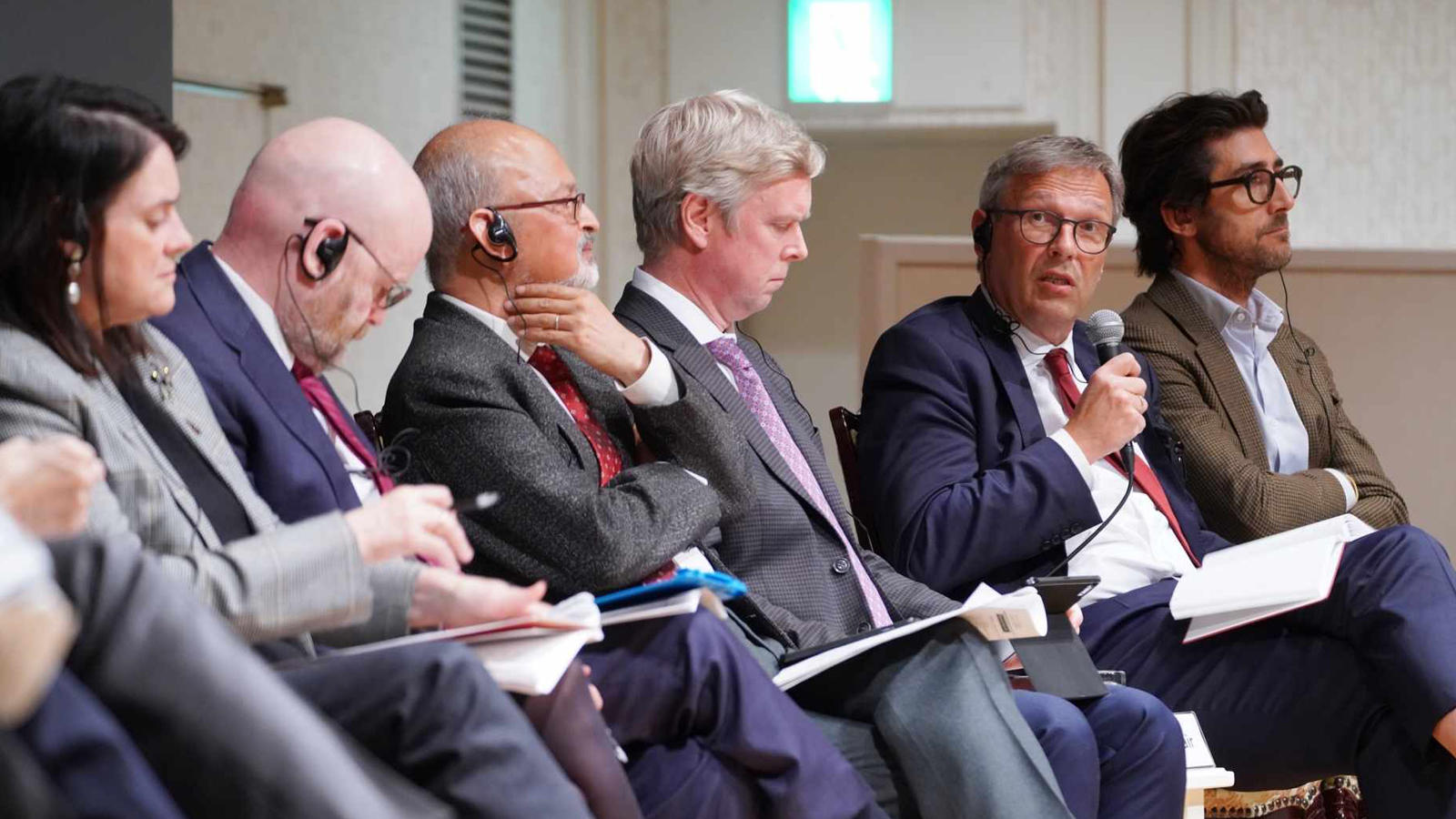
Dialogue is more important than war
The latter part of the session saw the panel take questions from the audience. The first question addressed the lack of regular summit meetings between the US and China, and wondered if it would be possible to make it mandatory for the leaders of those countries to have more dialogues that include other key leaders. James Lindsay responded.
"Churchill said that 'Jaw, Jaw is better than War, War,'" Lindsay began. "One of the more worrying things over the last decade has been the increased tension between the United States and China, which has been accompanied by a reluctance to talk, particularly on the part of the Chinese. It is good that we have seen a conversation resume beginning last November. As for the idea of compelling leaders to meet, I don't get the sense of how one would enact that. I think more... military to military conversations would be useful."
Bronwen Maddox agreed with Lindsay's assessment and added, "I think that the face-to-face meetings, particularly when it's not formal...do make a difference. There's more of it about than one might think. I have in mind the reports by the Financial Times today that the US is talking to Iran about trying to bring down the temperature in the region and do something about the Houthis. Of all the gloomy things we are talking about, a military confrontation between the US and China is the worst thing that we can imagine, and the catastrophe that everyone wants to work to head off."
Is it acceptable when "freedom" is used to destroy other freedoms?
After a few more questions were fielded, Medhora turned to a question regarding the balance between human rights and sovereignty.
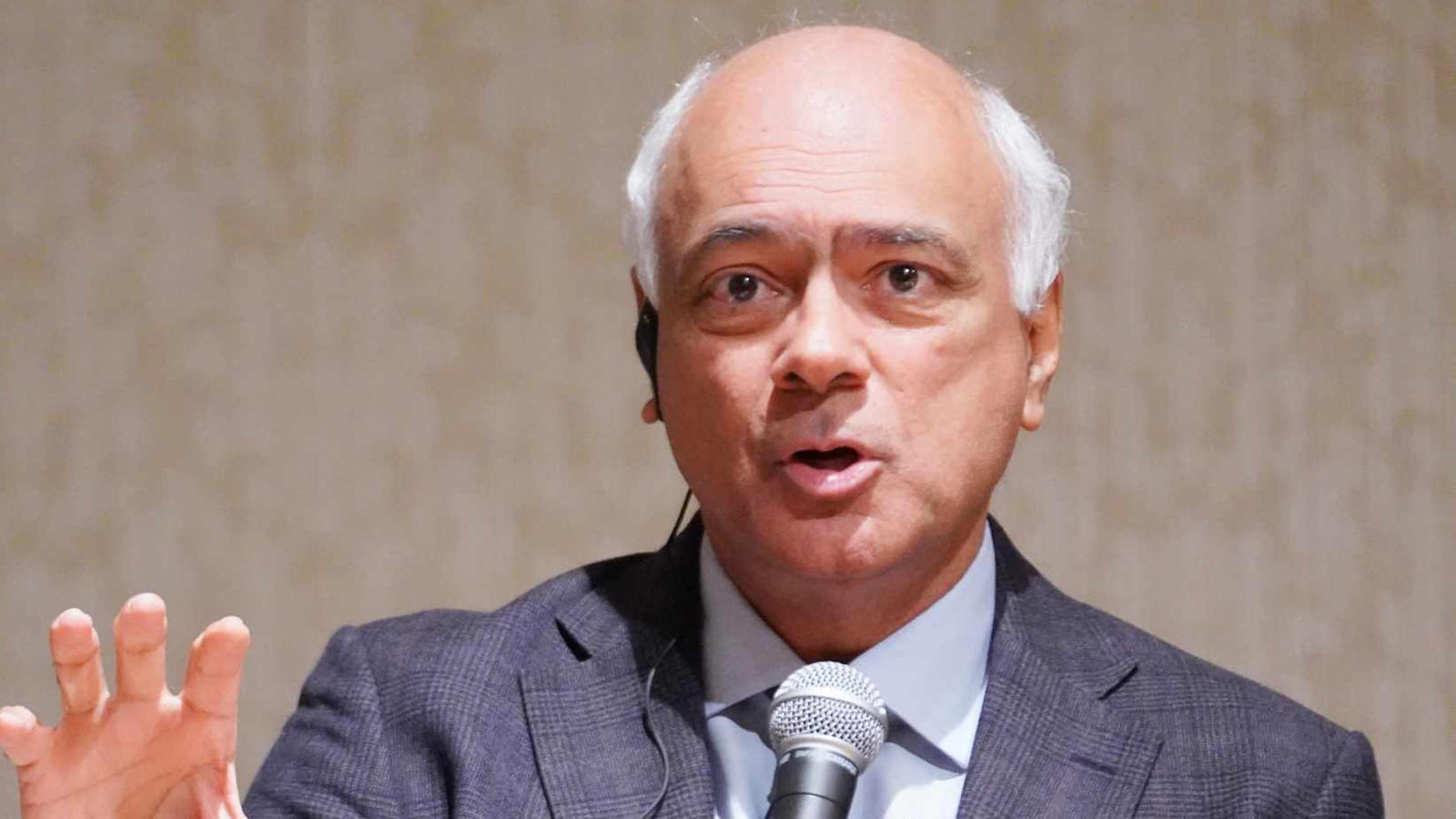
"Does national sovereignty trump human rights, or should human rights trump national sovereignty?" he asked, and Bronwen Maddox was one of those who responded.
"I think the way countries chose to respond to what you've sketched out is then an expression of their principles. But there isn't going to be a single statement of those principles. Many countries choose to rate human rights very highly. I think we take it as a test of their underlying philosophy rather than there being a single principle, much though our countries might like to wish that single principle on the world."
Genron's Yasushi Kudo also responded to this question.
"Global society is comprised of sovereign states, but does that mean if the rights and lives of citizens are violated by a state, that we must follow a policy of non-interference in internal matters?" he said. "There's an inconsistency there, and even if international law moves towards guaranteeing human security, there is no global government in place to guarantee that it will be enforced. If states and interstate conflict are infringing upon the happiness of citizens, then we have no choice but to work together to fix the problem. Our objective is to ensure the happiness of the people of the world, and to have hope for the future. That is why these think tanks from around the globe have gathered here in Tokyo."
Kudo continued, turning to the topic of democracy.
"In some countries, the aftermath of globalization has led to internal rifts, to citizens not bothering to vote, to mobs coming together to attack national legislatures after refusing to recognize the results of elections. Yes, the separation of the three powers needs to work better in order to address the retreat of democracy, but what we need to be thinking about is the issue of people's freedoms," Kudo said. "Fake news in various forms is being left unchecked, and both information and technology have been left to run amok. Can we accept when 'freedom' is used to destroy other freedoms?"
James Lindsay made a final comment before bringing the discussion to a close.
"There are several people on this dais who are diplomats or have been diplomats in the past. One of the great virtues of diplomats is the skill of trying to find a solution where one does not seem to exist. This is the great spirit of the Tokyo Conference ? bringing together people from different places, with different perspectives, to begin and continue an honest dialogue about how we can ? with our different perspectives and interests ? reconcile them in a way that is a 'win-win' situation. On that note, I wanted to do a shout out to Kudo-san, because he is the person who envisioned this and made it possible."
This response was received to applause from the audience, and the second session of the open forum was brought to a close.
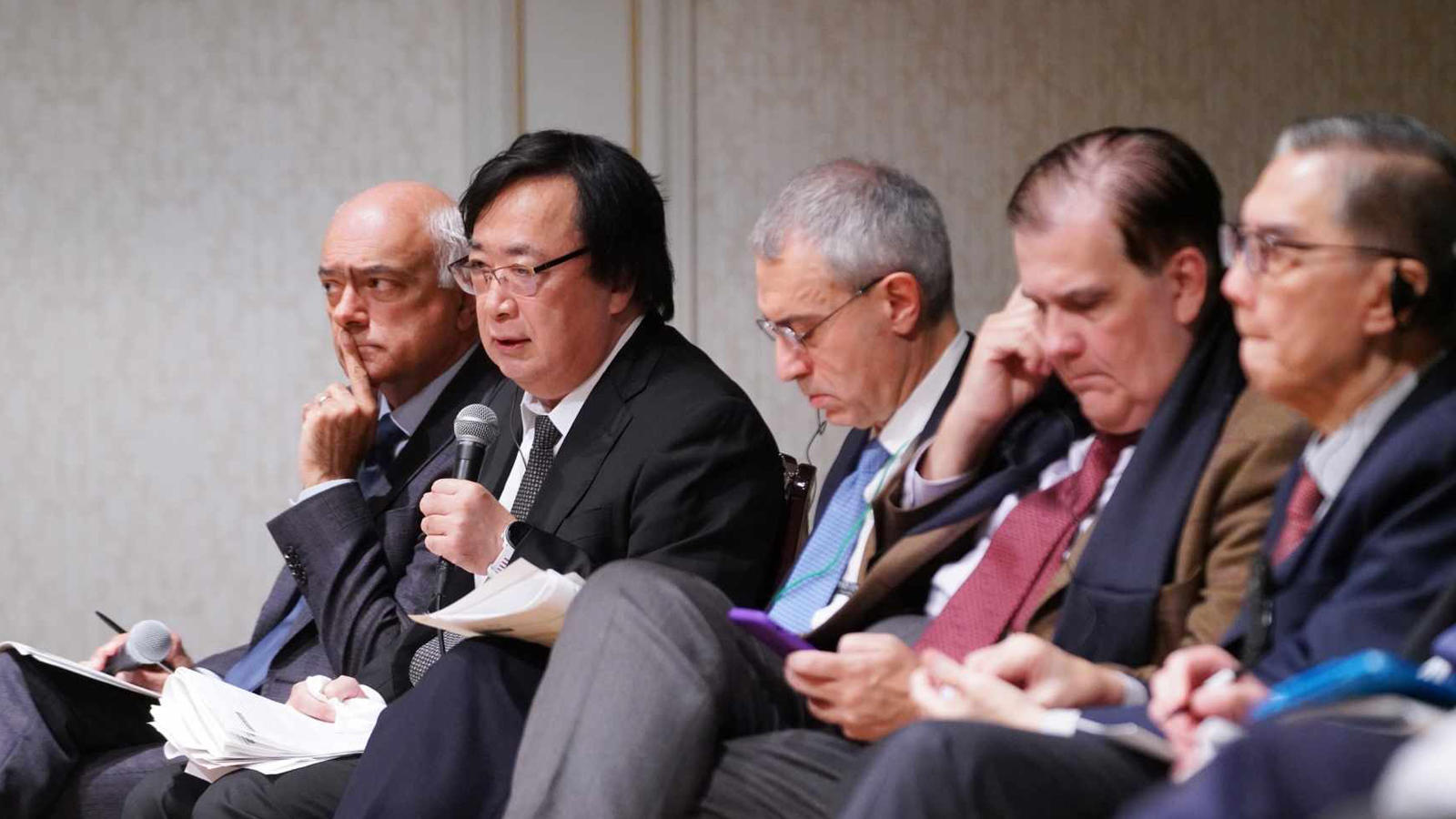
Post a comment